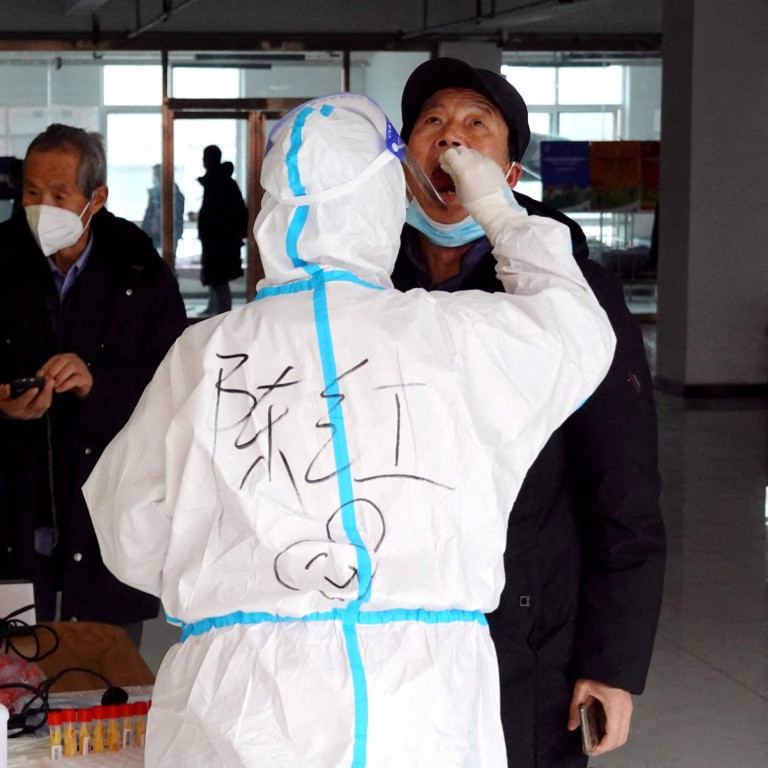
China to create buffer zones at border cities to curb outbreaks
- Special control measures will be applied in bid to stop spread while protecting economy
- Xian residents enter 7th day of lockdown with tighter restrictions after 151 cases reported for Tuesday
The policy comes as China works to snuff out sporadic outbreaks in different parts of the country. Clusters have broken out in recent months in Ruili, Yunnan province, which borders Myanmar, and Manzhouli in Inner Mongolia, near Russia and Mongolia.
All but one of the 152 cases recorded across the country for Tuesday were found in Xian, which entered its seventh day of lockdown on Wednesday.
Liang Wannian, a former National Health Commission (NHC) official who heads a panel of experts advising the government on its coronavirus response, said the outbreaks showed the need to double down on its control measures in the face of Omicron, instead of adjusting them.
A circular issued by the NHC earlier this month said local governments with vibrant border trade should consider setting up buffer zones. As for air traffic hubs, it advised increased surveillance and screening of airport and cargo workers, as well as strengthened sanitisation procedures for cold chain areas.
Liang said life inside the buffer zones would go on as normal, as long as there were no Covid-19 cases.
If an infection is detected inside a buffer zone, control measures like screening and contact tracing will target specific areas within it, he said in an interview with Shanghai-based online news outlet Thepaper.cn.
“Checkpoints will be set up in buffer zones, such as villages that are closest to the roads at the border, and residents cannot leave these zones unless necessary. Special requirements will be attached to those who have to leave the zones,” Liang said.
Non-buffer zone areas will not be subject to the same restrictions so the “dynamics” of the economy can be restored faster, he said.
Liang visited the hard-hit border area of Ruili, in the southwestern province of Yunnan, in November where imported cases of Covid-19 have caused successive clusters of infections.
He also stressed the buffer zones would not operate identically, with authorities expected to take local factors into account.
“By setting up the buffer zones, it is like moving the entry point further inland, and thus reducing the risks of spillover,” Liang said, adding the measure would also minimise the social economic costs of pandemic control measures in the border cities.
China wants permanent quarantine centres built for inbound travellers
Liang said the southern province of Guangdong was a good example of how other places could experiment with solutions relevant to their own conditions. Provincial capital Guangzhou, which handles most inbound flights to China, is setting up a massive quarantine centre.
“To a certain extent it can reduce the pressure for local governments in port cities to control the pandemic, and it can be an example to other port cities,” he said. “However, it is just one of the experiments and other port cities should come up with their own measures after taking into account their own situation.”
In Xian, which has now recorded a total of 962 cases since December 9, a sixth round of mass testing started on Wednesday morning and all outings have been banned. Previously, one person per household was allowed out every two days to buy essentials.
He Qinghua, an inspector from the NHC, told a press conference that the government would step up screening and control measures because the outbreak was still on an upwards trend and cases are spreading out of the province.
Thousands of people took to social media platform Weibo with complaints about being unable to buy food in the city.
“Just want to ask when can I buy vegetables?” said one commenter named Chunfenglanghua. “The government says there are multiple ways to deliver vegetables, our residential community says they don’t know, we and the official notice are in two different worlds?”


